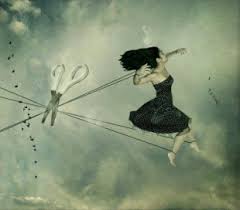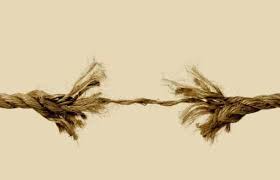This entry was originally written 4 months ago. I realize we are all pre-occupied with Covid-19 and what is currently happening in the world. We might not need any further sad or heavy topics on top of our current feelings. I will continue to post to this blog in the format and content to which I intended, but have decided to not publicize it as widely as I was. Wishing you health and wellness!
Back in the day, amputations were crude affairs. Done in haste, one leather strap and a bone saw. No anesthesia. There was too much blood, the damage was too great. It’s your life or this limb. I’ve only seen depictions of these crude surgeries in movies. There is screaming and sawing sounds, sometimes blood splatter, but nobody saying – “you know, I’ve decided I’d rather not do this. I’ve decided to let my life reach it’s natural end”. There’s a lot to say for shock, there’s a lot to say for being in too much pain to make rational decisions. I wonder if people did protest at the time. Again, just in the depictions I’ve seen the surgeon made the call and there was nothing else to talk about. What it actually was like, what conversations were had in these places linger only in ghostly whips on a battlefield, for those sensitive to it.
In our current times, amputation is every bit as brutal, but at least it is anesthetized. The subject of these has at least been informed and knows what to expect. The outcome remains the same. At the end of the day you are left with a lot of pain, a new chapter in your existence and part of who you were being incinerated with so much medical waste.
There is a documented metaphysical after-effect of amputations, the phantom limb. People report feeling horrible itching, burning, feeling the limb that is no longer there. Although the nerves have been severed, the mind has a difficult time accepting the new reality. Every now and again, it is like the limb remains.
While the percentage of those of us who will experience amputation of a limb is minuscule, the percentage of us who experience the psychological amputation of a person, people, group or belief system is staggeringly high. In fact, almost everyone on Earth has experienced this. We are not alone. The determination that, whatever it is, whatever person or part of our life has become far too problematic, far too painful for it to remain. That it will cause the greater injury in time. Choosing the shorter pain (no matter how intense it may be) increases the odds for your survival and well-being into the future. The pain, the disease, the blood loss has progressed past the point of return. The limb must go before you follow.
I’m loyal to a fault. No, I mean really. It actually is a fault of mine. By the time I’m ready to amputate something or someone in my life, it is well past the point where others would have exercised decisive action. It’s unfortunate. I believe this has most likely been caused by long-held beliefs of personal unworthiness. A belief that love must hurt. A belief that you must suffer for others as it’s the selfless thing to do. Nobody wants to appear selfish. A belief that the right is not yours to let others down. A belief that it’s giving up, quitting. Nobody wants to appear a quitter either. That the limb can still be saved despite the evidence at hand. The flat unwillingness to accept that it cannot.
Those people and things I have been forced to amputate from my life have remained suspended in time at the moment I last saw them. Never aging or even moving on with their own lives. I guess these are my phantom limbs. As an example, I’ve had numerous instances of seeing a certain ex-boyfriend of mine. I have seen him in different states, in different places. A familiar gait, sometimes even just the right height and build will do it. I am taken back in time. I have to remind myself that I haven’t seen or talked to this person for 25 years. They are middle aged now, not in their 20’s. My brain has kept them frozen in time, though, held fast to the circumstances in which I last saw them.
There was an unfortunate person who reminded me of this ex-boyfriend at my former gym. I was flat out humiliated how many times he caught me starting at him, high above on the stair climber. A vision of loveliness, distressed, at Level 7. I really should have waved him over to explain before we moved. Damn. Now he’s probably like – what happened to my “gym girlfriend” and, although I did not care for her staring, she did make me feel kind of important.
I digress.
I experienced this again recently at my 30-year High School reunion. I had the feelings I’m sure most people have. What should I wear, what if nobody talks to me, what if I look really old, unrecognizable as my former teenage self. All these things. I didn’t realize until I walked into the event that I had completely expected to walk into a room of 17-year olds. I walked, instead, into a room of normal looking, middle aged people. Like myself. Time had only frozen them in my memory. Things have a tendency to remain where we left them.
Some amputations are quick and fairly painless. 3rd circle friends, situations we were over, jobs we really didn’t like anymore, it doesn’t even have to be official. Just a growing distance that is pretty easy to accomplish. Let circumstances guide it. Out of sight, out of mind. Right? A little bit of awkward and slip away.

When it comes to matters of the heart, though; those closest to us, people we truly care for, groups it hurts us to leave, these become the Civil War Era types of amputations. No anesthesia, just two people restraining you and a bone saw. Romantic relationships, family, beliefs that your world was based on, groups you found safety in. Decades of your life, at times. People you thought you couldn’t live without; you suddenly find yourself testing the truth of that statement.
There is a primitive survival instinct when it comes to being part of a “tribe.” Our modern minds remember our ancestors. Being included in the tribe meant safety. Being pushed out of it meant death. Even though it no longer means that literally, there is still a very unsafe feeling in voluntarily leaving or being pushed out of a tribe. We see it depicted in movies and real life as well, when a character stands up to their friends or sticks up for someone being bullied. We see it in certain religions that bank on this fear of being pushed out of the tribe. It makes it so much more difficult to leave when you know your family and friends will turn their backs to you. Most of us don’t find ourselves in this situation. I have not myself, but I do meet people who have been faced with this choice.
The cognitive dissonance in these situations can cause a huge amount of psychological unrest. How long does it take the scale to tip? On one side is the love you received from a person, group, or situation. On the other side, the harm. I know in almost every case in my own life, the love/positive side had been heavily weighted, starting out. It took quite a while for that side to start to rise, a counter balance to what was now on the other side. Pain. Toxicity. Intentional harm. Can a person be both, fairly? The in-between of this is maddening. How far do you let the scale tip before making your decision? I mean, honestly, when I look back, I wish it would have been the very first time anything was added to the other side of the scale. That’s not human though, is it? We have all caused harm to others, and we have all been caused harm by others. It seems you can only appreciate it being done intentionally as time passes and you gain the ground to reflect. How can a person both love you and reject you completely? How can YOU both love someone and reject them completely? I guess most of us have been faced with this exact same situation, on one side or the other.
A sense of autonomy is vital, in our journey as humans. I feel fortunate, in this way, that I’ve had several times in my life where I have had to truly depend on myself. I have found myself isolated. I have found myself in situations where I felt that nobody could possibly understand how I felt. I have found myself with very few material possessions, very few friends. I have felt myself going through medical crisis’s that others could not relate to. I have never been truly alone. I have always had the love of those who loved me. This is not a replacement for autonomy, though. I have learned self-reliance in layers, during my life. My current layer of this at age 50 is unique because I have had to move from my identity as a mother. I will always be a mother but portions of my time no longer go to caring for growing children. My identity of “mom” that made it easy to befriend other “moms” has been mostly removed.
Click on this for actual footage of my therapist teaching me self-reliance at age 50:
Autonomy is so important, though, because it makes us hesitate less making decisions on something that was previously beneficial turning toxic. There are less excuses of – but what, what, what. When you are able to meet your own needs and not depend on things and people that have broken down, passed their time. There is less fear in it.
The truth is, in the vast majority of situations, you do eventually adjust to the loss, to your new chapter. It may seem impossible; but in time it becomes not only possible but accepted. The space fills in, the questions subside, we go on. We don’t ever have to be glad for it. You may feel the phantom pains of the lost limb well into your future. It can be 20 years later when you suddenly awake and feel itching in leg that has been gone forever. You may hear a song that suddenly fills you with melancholy reminding you of a person that you lost. You may be struck with a deep longing for the way things were before. There’s a haunting song by The Killers I don’t care much for. “And sometimes you close your eyes and see the place where you used to live. When you were young.” The words came into my head at a large family gathering as the cool air coming off the Utah mountains created a fog around us at sunset. Life can surely be an unexpected journey, can’t it?

We can both be filled with longing and the knowledge that we cannot have these people and periods of our lives back at the same time. The best thing we can do is let the vacuum that sucks these things out of our lives, draw something in the other side. In it’s own time. We must be still in the middle and not try to draw things back that were, from the beginning, sworn to go.

